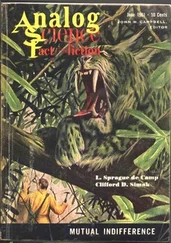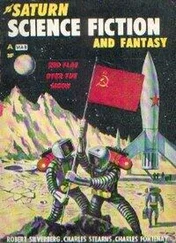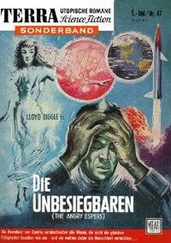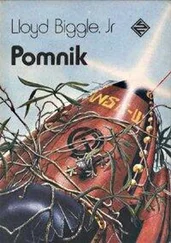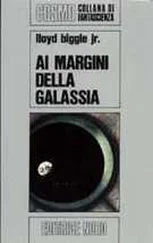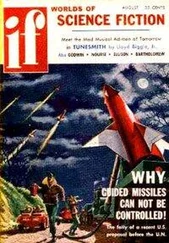Lloyd Biggle Jr. - The World Menders
Здесь есть возможность читать онлайн «Lloyd Biggle Jr. - The World Menders» весь текст электронной книги совершенно бесплатно (целиком полную версию без сокращений). В некоторых случаях можно слушать аудио, скачать через торрент в формате fb2 и присутствует краткое содержание. Год выпуска: 1971, Издательство: Doubleday, Жанр: Фантастика и фэнтези, на английском языке. Описание произведения, (предисловие) а так же отзывы посетителей доступны на портале библиотеки ЛибКат.
- Название:The World Menders
- Автор:
- Издательство:Doubleday
- Жанр:
- Год:1971
- ISBN:нет данных
- Рейтинг книги:5 / 5. Голосов: 1
-
Избранное:Добавить в избранное
- Отзывы:
-
Ваша оценка:
- 100
- 1
- 2
- 3
- 4
- 5
The World Menders: краткое содержание, описание и аннотация
Предлагаем к чтению аннотацию, описание, краткое содержание или предисловие (зависит от того, что написал сам автор книги «The World Menders»). Если вы не нашли необходимую информацию о книге — напишите в комментариях, мы постараемся отыскать её.
The World Menders — читать онлайн бесплатно полную книгу (весь текст) целиком
Ниже представлен текст книги, разбитый по страницам. Система сохранения места последней прочитанной страницы, позволяет с удобством читать онлайн бесплатно книгу «The World Menders», без необходимости каждый раз заново искать на чём Вы остановились. Поставьте закладку, и сможете в любой момент перейти на страницу, на которой закончили чтение.
Интервал:
Закладка:
Lloyd Biggle, Jr.
The World Menders
I
The captain himself escorted Farrari to the lighter and even carried one of his space bags for him.
He was a large, moody-looking man, this Captain Vaunn, and he had revolutionized Farrari’s concept of a spacer. He went grimly about his business, said very little, and seemed as phlegmatic as a robot. In two months of chance encounters he had spoken directly to Farrari only once, and that when Farrari, to relieve the unrelenting boredom of space travel, took up a textbook, “Art in Rudimentary Societies,” and spent several hours listening to the monotonous one-note scansions of primordial song. The captain knocked timidly, asked what the racket was, and, when Farrari explained, said almost apologetically, “Oh. We thought maybe you were sick, or something. Would you mind lowering—” Red-faced, Farrari turned down the volume.
But there it was. Space undoubtedly attracted a quota of hellions and adventurers, and for them its majestic emptiness would be only an inconvenient obstacle to be surpassed on the way from one place to another, the sooner the better. One would be unlikely to encounter these types on a plodding Interplanetary Relations Bureau supply ship.
The true spacer would be a timid introvert who dedicated his life to putting light-years between himself and his fellow men and found in such magnificent isolation the ultimate place of refuge. A Captain Vaunn, who would confront another person only under severe provocation, such as hours of primordial song reverberating through his ship’s ventilating system.
He had not spoken to Farrari since then, and he did not speak now. He was present because etiquette demanded it, but plainly he would have preferred to remain in bed. He forced an embarrassed smile, his lips shaped a trite formula of benediction without uttering a sound, and he turned Farrari and his bags over to the mate and fled.
“Your last stop?” Farrari asked the mate.
“This is the last classification team. There are only survey and exploration teams beyond this.”
He met Farrari’s blank look with a polite smile, wished him a comfortable landing, and nodded to the lighter’s pilot.
Farrari climbed aboard, and the pilot fastened his safety harness, tilted his seat for him, and announced, “Clearboard let ’er go.” Girders of the hull flashed past on the screen, to be abruptly replaced by a dazzling curve of star-lit sky framing the enormous emptiness of the ship’s black silhouette.
“All set?” the pilot asked.
Farrari nodded. The lighter’s engines hummed thunderously, and they plunged downward.
It was nothing like Farrari had imagined it. He had watched twenty-nine departures, in which the lighter had been a gleaming dart on the ship’s viewing screen aimed unerringly at the dark disks of twenty-nine different planets watched enviously because the luck of the draw, or some unfathomable twitch of a computer, had given him the thirtieth and last assignment. Now that his turn had come he experienced only nausea and overwhelming disappointment.
Then the shadowy terrain dimly resolved itself into cragged, snowcapped mountain peaks softly awash with starlight, and the awesome loveliness of the view almost made Farrari forget his stomach.
The lighter braked crushingly. An opening yawned in a mountain peak, and they drifted into it and came to a hissing stop as the air lock clicked open. Farrari reeled forth with his space bags, which had abruptly acquired a staggering weight.
“Hello!” a voice rang out. “Who’s this?”
“AT/1 Cedd Farrari,” Farrari answered mechanically.
“Trainee,” the pilot said, following Farrari from the lighter. “Didn’t you get orders?”
“Probably. Not my department, you know. Graan is my name. Isa Graan. Base supply officer.” He took one of the bags and crushed Farrari’s free hand. A huge man, he towered over Farrari beaming down at him, his eyes alert and friendly under a crown of wildly bushy white hair. “Welcome home, fellow. It’s a nice base, the coordinator is a good man, and this planet is certain to be oh-ohed indefinitely.” He laughed. “You might call it a choice assignment. Not ideal, but choice. We’re not under any pressure, and we haven’t lost an agent in months. It’s a good place for a train—hello! What the devil is that?”
He was staring at Farrari’s collar insignia—the lute, scroll and palette of the Cultural Survey.
“I’m CS,” Farrari said.
“What’s CS?”
“Cultural Survey.”
“What’s Cultural Survey doing way out here? Damn it, fellow—you’re lost!”
“Why don’t you have someone on hand who knows what’s going on?” the pilot asked irritably. “We’ve been dropping CS trainees everywhere between here and the frontier.”
“You can’t expect the whole base to turn out for one trainee,” Graan said. “Got a copy of your orders, fellow?”
“In one of my bags,” Farrari said. “I certainly feel lost, but if this is Branoff IV it’s where I belong.”
“Get the coordinator out of bed and ask him,” the pilot suggested.
“Ha! How many times have you yanked your captain out of bed lately?”
“Clear it with somebody before my next load. If I don’t make my getaway time, I’m stuck here for seventeen hours.”
“I’ll check,” Graan said. He set down Farrari’s bag and ambled away.
A work crew had opened the lighter’s cargo hold and rolled a conveyor into position. The pilot handed over a bundle of manifests, and one of Graan’s assistants began matching them with the crates that rolled down the conveyor. Farrari seated himself on one of his bags and waited stoically, ignoring the curious glances sent his way.
A tall, gaunt man strode into the room and stood watching. He wore a long mantle over a short, legless garment, and the vivid colors of his apparel were no less startling than his bare arms, which in spite of his slender body were incongruously muscular. Graan’s assistant grinned at him. “Are you still here, Peter? I thought you left yesterday.”
“I was due in Scory last night,” the other said disgustedly. “I had to wait for this dratted supply. Have my com relays turned up?”
“Haven’t seen them yet.”
“If they aren’t here, someone is going to have to make some.” His gaze fell on Farrari. “What do we have here? Trainee?” He strode forward and offered his hand. “I’m Peter Jorrul. Field team commander. What’s your linguistic index, fellow?”
Farrari responded with a limp handshake. “Linguistic—index?”
Jorrul waved his arms despairingly. “What are things coming to? A trainee who doesn’t even know his linguistic index!”
“He’s Cultural Survey,” the pilot said. “He wouldn’t know a linguistic index from a classification ratio.”
“Cultural Survey? Here? Does the coordinator know?”
“If he reads his mail he knows. We transported thirty CS trainees, and all of them had priority orders.”
“Sounds like one of those sick jokes that the Psych Board keeps dreaming up.”
The pilot chuckled. “No. Definitely not. Thirty CS trainees are no joke. Every permanent base in this sector got one.”
“Then Supreme has had another of its periodic attacks of imbecility. I’m almost afraid to ask, but—why?”
“Why is a question you should learn not to ask. Invariably the answer is—why not?”
“Here’s the manifest on your relays,” Graan’s assistant called. “They’ll be down with the next load.”
Isa Graan returned, grinning broadly. “Strunk heard something about a CS man being assigned here, so I guess it’s all right.”
“Does Strunk know why?” Jorrul demanded.
Читать дальшеИнтервал:
Закладка:
Похожие книги на «The World Menders»
Представляем Вашему вниманию похожие книги на «The World Menders» списком для выбора. Мы отобрали схожую по названию и смыслу литературу в надежде предоставить читателям больше вариантов отыскать новые, интересные, ещё непрочитанные произведения.
Обсуждение, отзывы о книге «The World Menders» и просто собственные мнения читателей. Оставьте ваши комментарии, напишите, что Вы думаете о произведении, его смысле или главных героях. Укажите что конкретно понравилось, а что нет, и почему Вы так считаете.

